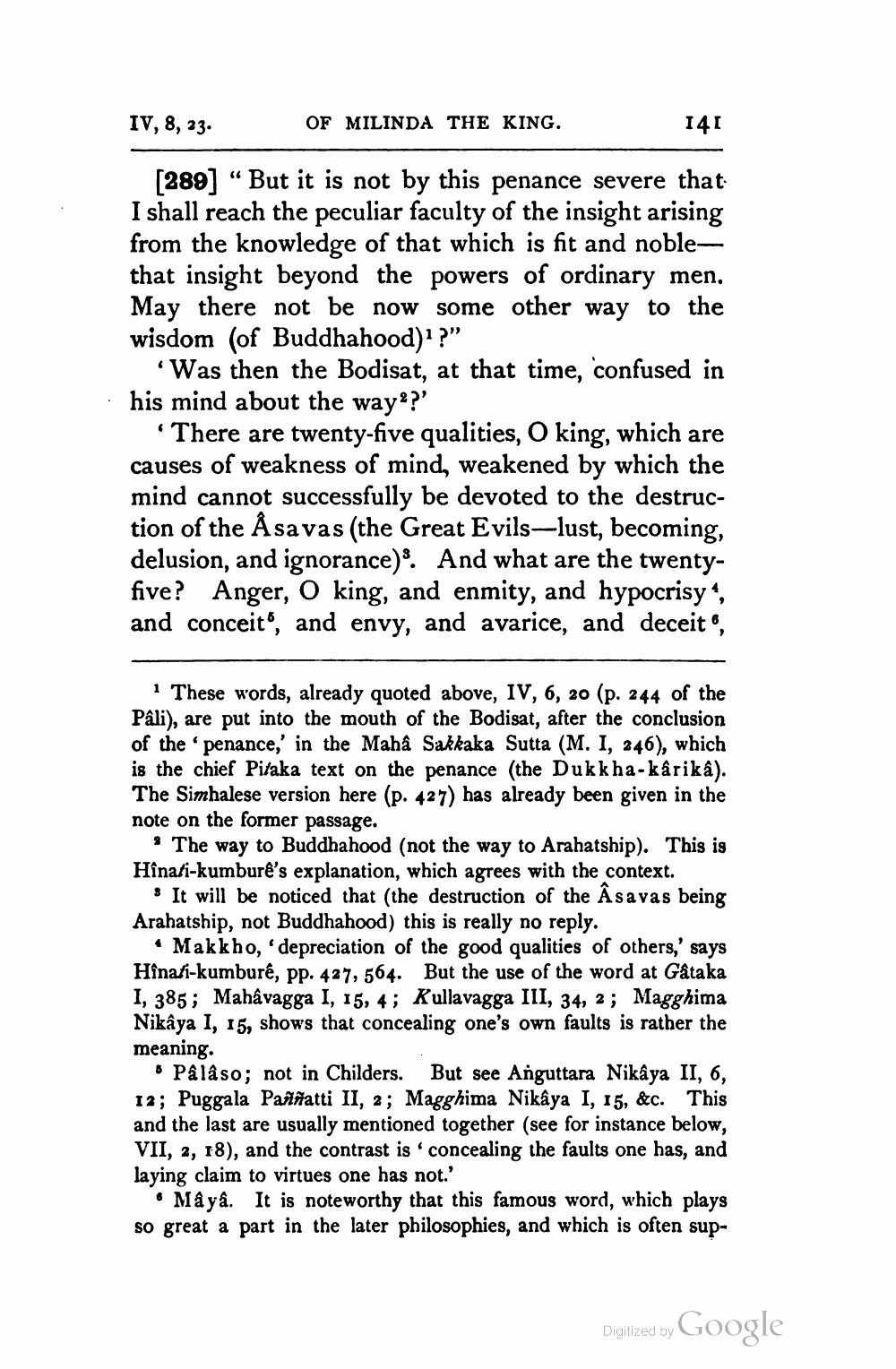________________
IV, 8, 23.
OF MILINDA THE KING.
140
[289] “But it is not by this penance severe that: I shall reach the peculiar faculty of the insight arising from the knowledge of that which is fit and noblethat insight beyond the powers of ordinary men, May there not be now some other way to the wisdom (of Buddhahood)" ?".
Was then the Bodisat, at that time, 'confused in · his mind about the way??'
There are twenty-five qualities, O king, which are causes of weakness of mind, weakened by which the mind cannot successfully be devoted to the destruction of the Åsavas (the Great Evils--lust, becoming, delusion, and ignorance). And what are the twentyfive? Anger, O king, and enmity, and hypocrisy“, and conceito, and envy, and avarice, and deceit ,
1 These words, already quoted above, IV, 6, 20 (p. 244 of the Pâli), are put into the mouth of the Bodisat, after the conclusion of the penance,' in the Mahâ Sakkaka Sutta (M. I, 246), which is the chief Pitaka text on the penance (the Dukkha-kârika). The Simhalese version here (p. 427) has already been given in the note on the former passage.
* The way to Buddhahood (not the way to Arahatship). This is Hînati-kumbure's explanation, which agrees with the context.
• It will be noticed that the destruction of the Asavas being Arahatship, not Buddhahood) this is really no reply.
Makkho, 'depreciation of the good qualities of others,' says Hînati-kumburé, pp. 427, 564. But the use of the word at Gataka 1, 385; Mahâvagga I, 15, 4; Kullavagga III, 34, 2; Magghima Nikâya I, 15, shows that concealing one's own faults is rather the meaning.
o Palaso; not in Childers. But see Anguttara Nikâya II, 6, 12; Puggala Pannatti II, 2; Magghima Nikâya I, 15, &c. This and the last are usually mentioned together (see for instance below, VII, 2, 18), and the contrast is concealing the faults one has, and laying claim to virtues one has not.'
• Mâyâ. It is noteworthy that this famous word, which plays so great a part in the later philosophies, and which is often sup
Digitized by Google




